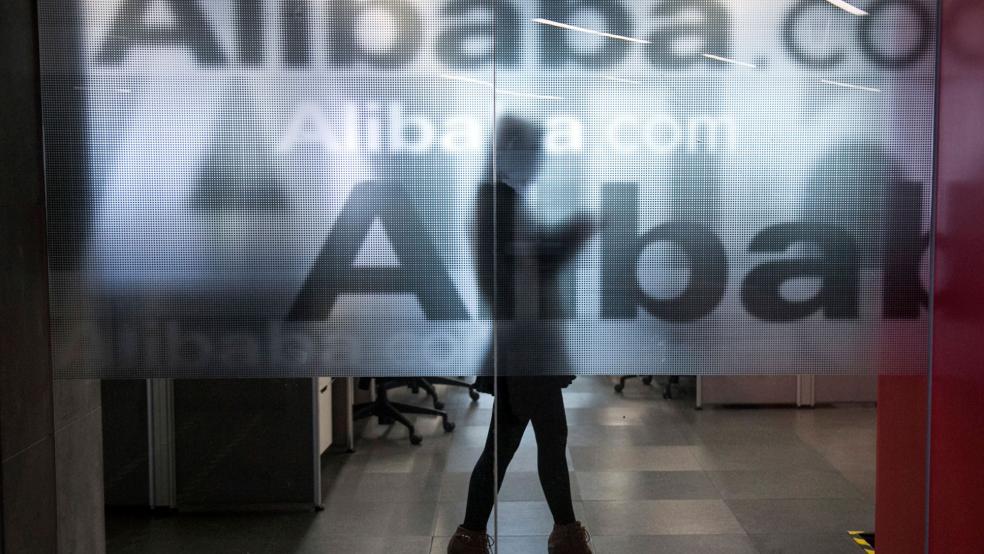If Jack Ma has his way, this week’s IPO of Alibaba Group, China’s online retailing behemoth, will blow away the public market debuts of tech darlings Google, Facebook and Twitter.
To be precise, Ma, Alibaba’s founder and chairman, is hoping that the company’s IPO will raise $24 billion or more in proceeds. That’s more than all three of those iconic U.S. technology companies combined raised in their IPOs. (Together, they managed to pull in $20 billion, with the lion’s share of that coming from Facebook, which became the country’s third-largest IPO on record by raising $16 billion.)
Alibaba clearly isn’t going to be content with coming second in the IPO sweepstakes. Its road show wasn’t typical either: Two teams criss-crossing three continents, holding 100 meetings over the course of 10 days, all leading up to the pricing on D-Day: September 19. Demand for IPO shares has been strong enough that Alibaba now plans to boost the price of its offering, according to a Bloomberg report, ensuring its place as the biggest IPO in history.
As that interest suggests, Alibaba’s arrival on the market couldn’t be better timed. Close your eyes, knock a zero or two off the end of the sums being raised, and yeah, you might just be back in 1999, in the heyday of the dotcom boom.
Already, companies have raised $40 billion in the IPO market so far in 2014. Renaissance Capital estimates that the 100 companies still waiting in the wings, including Alibaba’s deal (which they peg at $20 billion) could bring the total to $80 billion, up 46 percent over last year. In order to set a new annual record, Alibaba and the other IPOs still waiting their turn to price would need to do well enough to bring the total north of $97 billion for the year — that’ show much IPO candidates raised in 2000.
With trading and other kinds of investment banking in the doldrums, Goldman Sachs, Morgan Stanley, JPMorgan Chase, Citigroup and others who will get a piece of the Alibaba action, and of the other IPOs still waiting in the wings, have a lot riding on the success of the offering.
For investors, China’s leading e-commerce company offers 279 million active buyers, 8.5 million active sellers and an operating profit margin of 43 percent — statistics that investors in Amazon.com may well covet. Yet there’s reason to be cautious, too.
Alibaba’s immense success has made its founder, Ma, immensely rich — but not the investors who backed it during its stint as a public company on the Hong Kong Stock Exchange. Some of Alibaba’s highest-growth assets were held separately from the publicly traded entity, and by the time the Hong Kong-listed business was finally delisted in 2012, long-term shareholders were left with little to show in the way of profits. Ma paid a premium to make them whole, but in the process, made it clear that there was something to be said for running a business “free from the pressure of market expectations, earnings visibility and share price fluctuations.”
So, what’s changed? Well, the Alibaba that’s going public today is a new, consumer-oriented business, not the business-to-business entity that was mired in vendor-related fraud problems. More cynically, there’s also the fact that the U.S. market is in premium valuation territory, so what’s to lose from trying to capture a bit of whatever action is going?
Moreover, U.S. regulators are fine with a more complicated share structure than the Hong Kong system, which insists on one share, one vote. In Alibaba’s case, 27 individuals control the decision-making process, although they won’t end up controlling a majority of the stock. That has worked out OK at companies like Google, but some prospective investors have been more wary when it comes to Alibaba, pointing to decisions like that by Ma to sell himself Alipay, the former Alibaba payment-processing division.
Yahoo and Softbank, who were shareholders at the time, were furious that unilateral action had taken place without an agreement being reached over the terms of financial compensation. Ma simply argued that he had to act as he did to ensure that Alipay got the right kind of banking license from the Chinese government. Softbank and Yahoo had the clout to hammer out a settlement with Alibaba, but individual investors may have less power with a CEO who has already made his ambivalence with respect to “the pressure of market expectations” quite clear.
In New York, whether out of curiosity or genuine interest in finding a way to profit from the billion-plus Chinese consumers and their spending habits, hundreds of fund managers and analysts flocked to the Waldorf Astoria Hotel, clogging the elevators and delaying the start of the road show presentation. Not that those who made it into the room in time said that Ma and his colleagues tackled many of the toughest questions about China’s uncertain economy and problematic shadow banking system, much less provided solid answers to the governance queries.
Ultimately, what may matter most is whether Alibaba’s deal has tails. Will it fare well enough to whet investor appetite for those still waiting to emerge from the pipeline, like LendingClub, the peer to peer credit provider, airline Virgin America, or cloud computing company Box. Or will a massive helping of Alibaba leave investors struggling to deal with indigestion?






